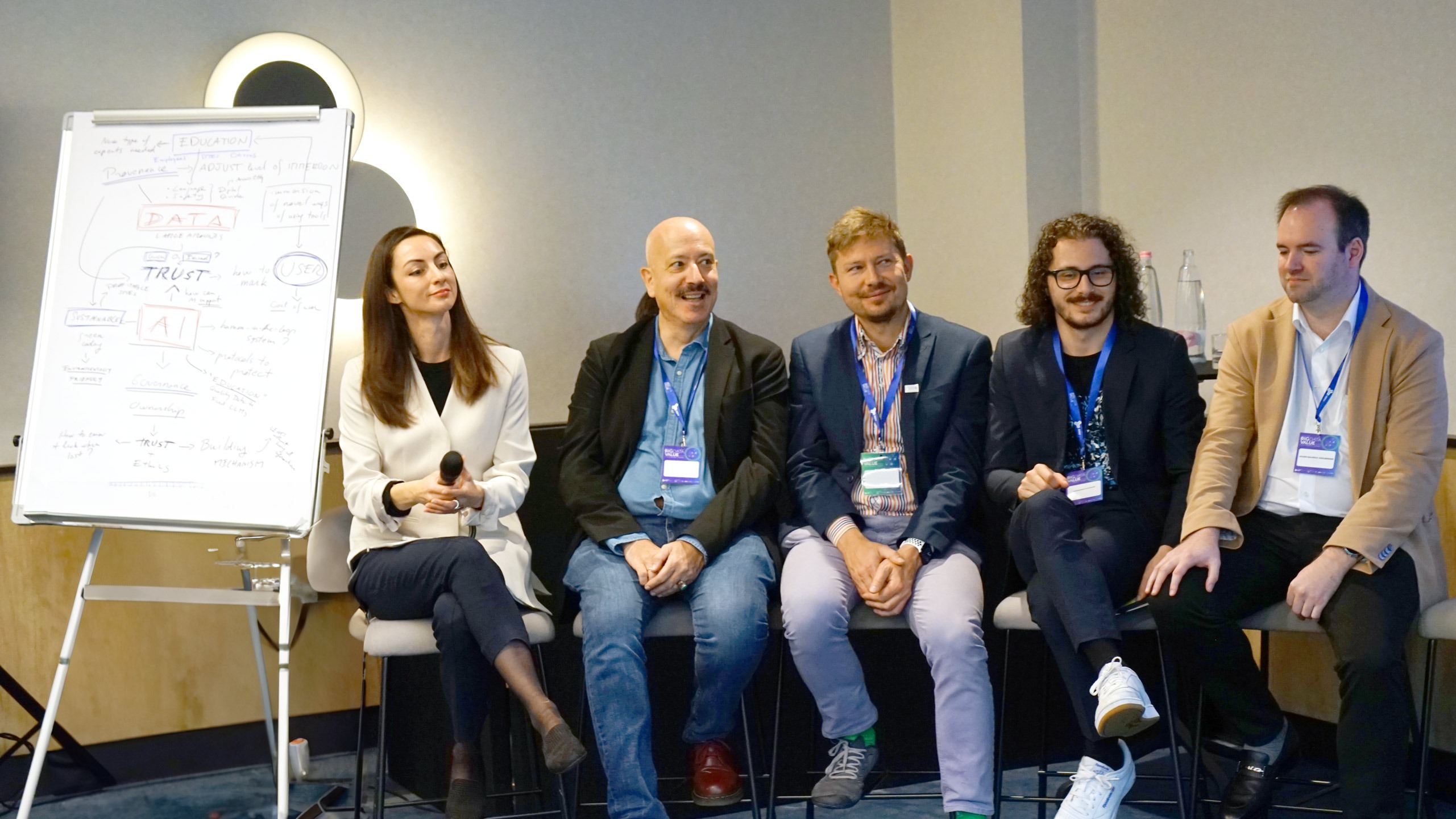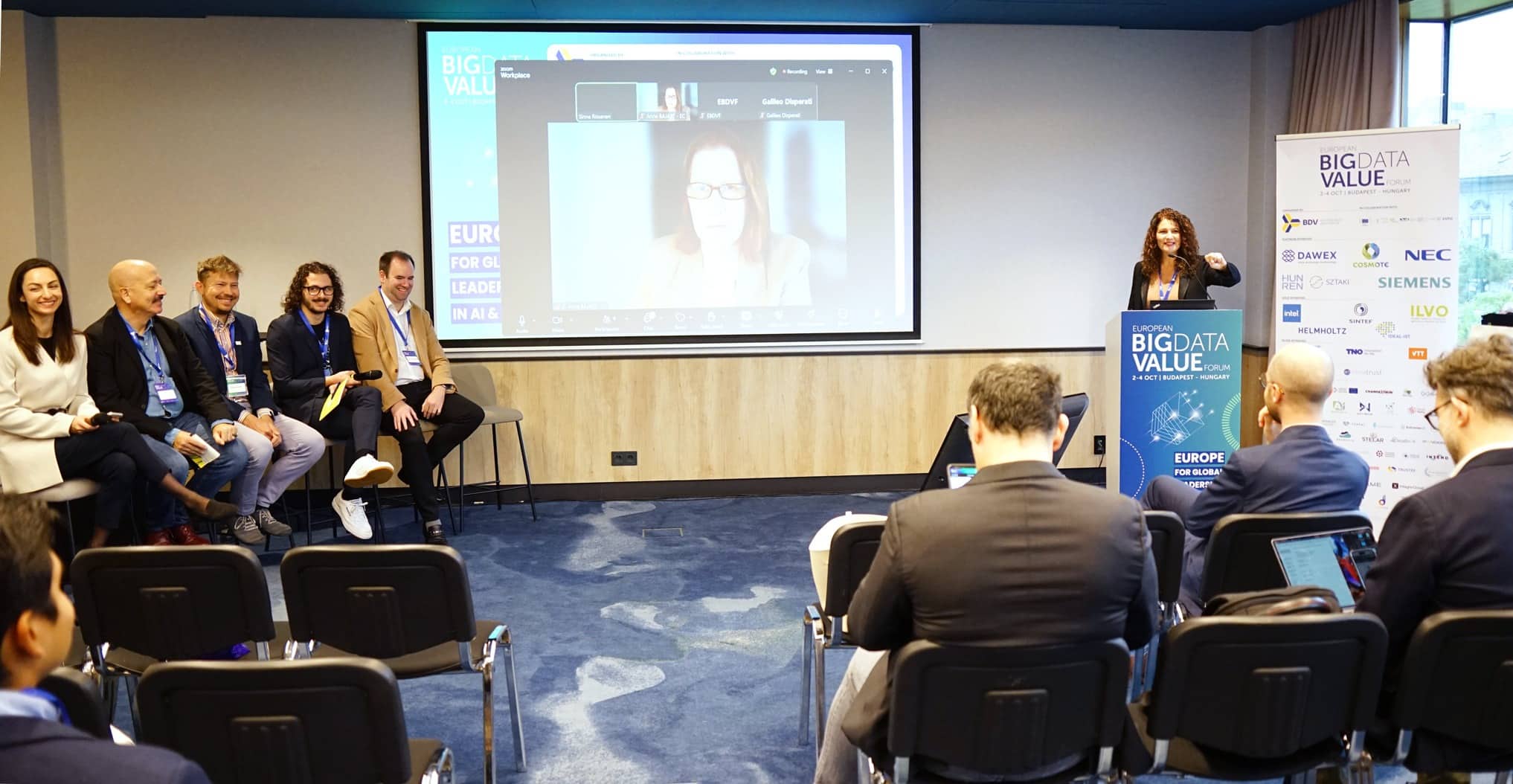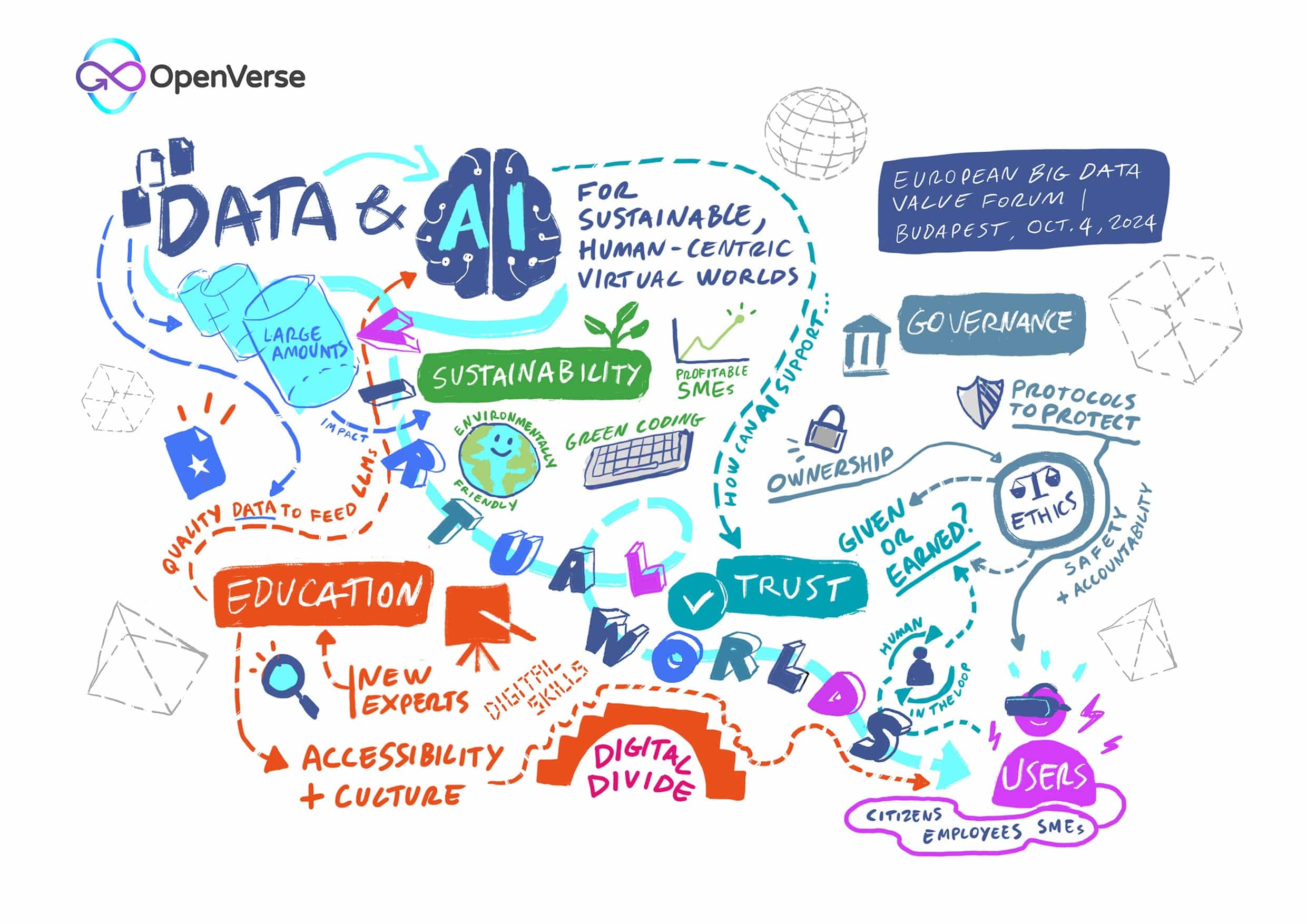The European Big Data Value Forum (EBDVF) took place in Budapest, on 2-4 October 2024. Major industry professionals, business developers, researchers and policymakers from all over Europe and beyond gathered in Hungary to discuss policy actions, industrial, and research activities in the areas of Data and AI. OPENVERSE was there! As Data and AI are the fundamental pillars of human-centred and sustainable Virtual Worlds, OPENVERSE organised a special workshop at which experts explored this complex subject and the associated challenges and opportunities.
Data and AI: Pillars of Human-Centric Virtual Worlds
Data and AI are the fundamental pillars of human-centred and sustainable Virtual Worlds that are fit for people. Data is needed to understand user behaviour, preferences and needs. By analysing this data, developers can create virtual environments that are more attractive and better adapted to users’ needs and expectations. AI can use predictive analysis to anticipate future trends and behaviours. This enables the design of more personalised and engaging virtual worlds, capable of adapting to changing user needs and environmental conditions, ensuring long-term sustainability. In particular, AI algorithms can help optimise the use of resources, such as computing power and energy, making virtual worlds more efficient and reducing their negative impact on the environment.
However, to realise this potential, a number of challenges need to be addressed, such as ensuring data privacy and security, addressing bias and fairness, managing high resource consumption and achieving interoperability. In addition, transparency and accountability in AI decision-making, scalability of solutions and maintaining a user-centric design approach are critical barriers. Addressing these challenges requires a multidisciplinary approach that reconciles technical expertise with ethical considerations and user needs, which is one of the key drivers of OPENVERSE’s work.
OPENVERSE: Sustainable and human-centric Virtual Worlds

The OPENVERSE workshop at EBDVF 2024 was titled ‘Data and AI for sustainable and human-centric Virtual Worlds’ and it was designed to explore the challenges and opportunities of Data and AI for Virtual Worlds. It brought together an impressive line-up of experts: : Anne Bajart, Deputy Head of Unit from DG Connect, in Interactive Technologies, Digital for Culture and Education at the European Commission; Andrea Bravo AR/MR/VR Specialist Metaverse Data & Ethics; Joaquin Salvachua from the Universidad Politecnica de Madrid, and OPENVERSE Consortium partners with Lukasz Porwol leader at the eGov Unit at the Insight Centre for Data Analytics; Julien Adelberger from the International Data Spaces Association; Alessandro Paciaroni from the Lisbon Council, and Dr Monique Calisti from Martel Innovate, who moderated the event. Expert panellists raised the importance of what Data and AI represent for Virtual Worlds. They sought to assess the areas of research, innovation, policy and regulation facing the community working on this front. The workshop was also an interactive session with a concentrated audience who participated in a live sketching session where they were all able to share what would be a perfect illustration of the implementation of Data and AI in Virtual Worlds.
“The complexity of Virtual Worlds is growing rapidly. As technology advances, the distinctions between reality and virtual environments will become increasingly indistinct, challenging our perceptions of what constitutes a “real” experience.”, explained Dr Monique Calisti, CEO at Martel Innovate, and moderating the OPENVERSE workshop at the EBDVF.

One of the main outcomes of the workshop and event was the importance of trust and transparency. Transparency is essential in building trust, whether it is given or earned. It is also very difficult to regain trust once it has been lost. Another important aspect is accountability and responsibility: the provenance and traceability of data is essential, as is clear governance and ownership. However, participants realised that technology is not neutral – we need to engage and educate users as well as technologists. The potential of data and AI is huge, but it is essential to manage the risks and develop sustainable technologies and solutions from the outset. In addition, accessibility and interoperability, which empower SMEs, must be at the forefront. Human-centred and sustainable virtual worlds are key priorities in the European digital landscape that we share at OPENVERSE, where we are trying to work with Virtual Worlds that are adapted to people and that guarantee the sustainable development of our society and economy.

OPENVERSE is a three-year Horizon Europe Coordination and Support Action. Its partners represent research institutions, technological enterprises, and innovative organisations from across Europe. Each brings their distinct expertise to this collaborative venture, ensuring its success and influence in shaping the future of virtual worlds.
